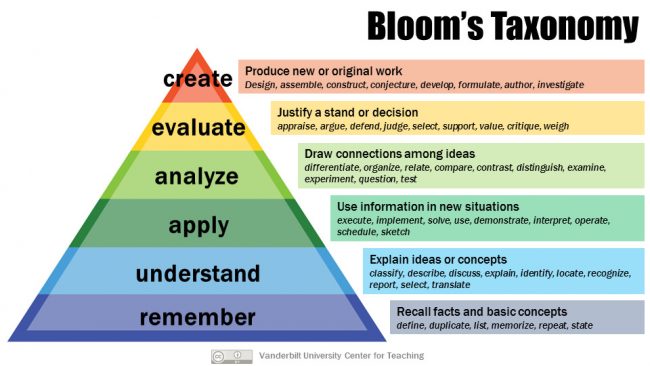AGILE MARKETING EDUCATION – SHARING TEACHING WORKSHOP PRACTICES
This is the Home for Agile Marketing Workshops Delivered through reputable Canadian Universities.
The Co-creators of the Agile Marketing Workshop Second Edition are Thomas Hormaza (Dow) and Michael Seaton.
Agile Marketing Workshop Concordia University
Agile Marketing Workshop University of Toronto
Learning from Practitioners and Educators of Agile Marketing
As Marketing Practitioners and Educators we not only infuse Relevant Marketing Content and Examples informed by decades of Real-Word Marketing Experience but have engineered the Material and Delivery to promote Better Learning Outcomes through the Application of effective Educational Technology Practices and proven Course Design as well as Learner Evaluation Theory.
Module Engineering to Deliver on Learning Objectives (Bloom Taxonomy)
As Educators we are mindful of the Facilitation Approach to be employed based on the Module we cover. Each Agile Marketing Module in our Course refer to a specific Acceptance Criteria and informs us of the Evaluation confirming the Learning Outcomes. We invite Fellow Educators to Read the Bloom Taxonomy and Reflect on the Language employed as we Teach our Classes. You may want to alter your Questions to ensure you both address the Type of Cognitive Process being triggered as well as the Type of Knowledge and level being solicited:
Cognitive Processes
- Create
- Evaluate
- Analyze
- Apply
- Understand
- Remember
Types of Knowledge
- Metacognitive (Strategic Knowledge, Self-Knowledge, Student is Able to Reason with Critical Thinking “I Know that I Know Because”)
- Procedural (Subject Specific Skill, Algorithms, Knowing Criteria “Know When to Use”)
- Conceptual (Classifications, Theories, Models, Structures)
- Factual (Terminology, Details, Elements)

Agile Marketing Engineered for Better Learning Outcomes
Experiential Learning:
-Early Concept Exposure followed by Hands-on Exercises & Simulations
-Progressively Building on Key Learning
Design Planning Sequence for Effective Evaluation (Wiggins):
-Exercises Individual & Group – Formative & Summative Evaluation
-Rubrics to Help Situate Learner Progress
Course Sequence Optimization:
-Sequence builds on prior learning concepts like scaffolding (Vygotsky)
Metacognitive:
-Prior Learning Activation on New Topics; from Accessible to Complex
-Time for Reflection at end during Retrospective
Relevance Increasing Engagement:
-Learners can begin the Agile Marketing Journey and create their Roadmap in order to accelerate the Transfer of Learning to Real Work